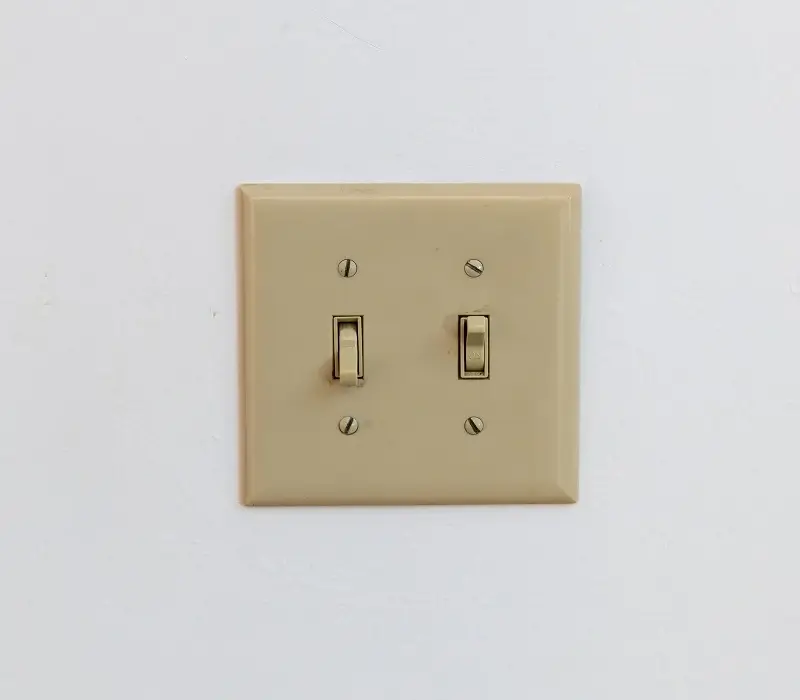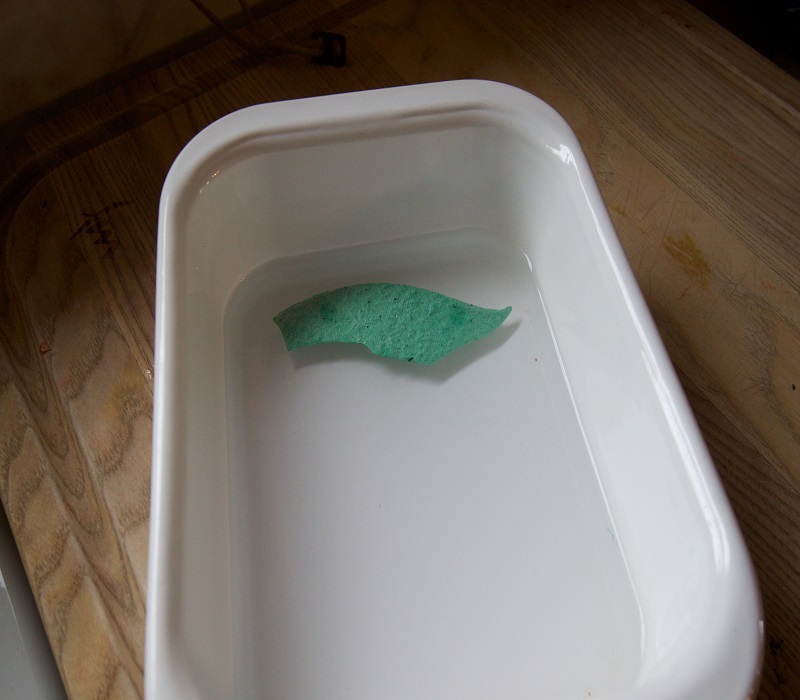
Rust stains on a plastic sink are a common problem, often caused by tap water. It can be due to rusted galvanized pipes, heater issues, or high iron levels. While the rust stain may seem to be horrible at first glance, there are several products that can get rid of it.
In this article, we’ve brought you both commercial cleaners and homemade ones. However, before you invest in a commercial rust stain remover, you should consider first these DIY techniques that are just as effective.
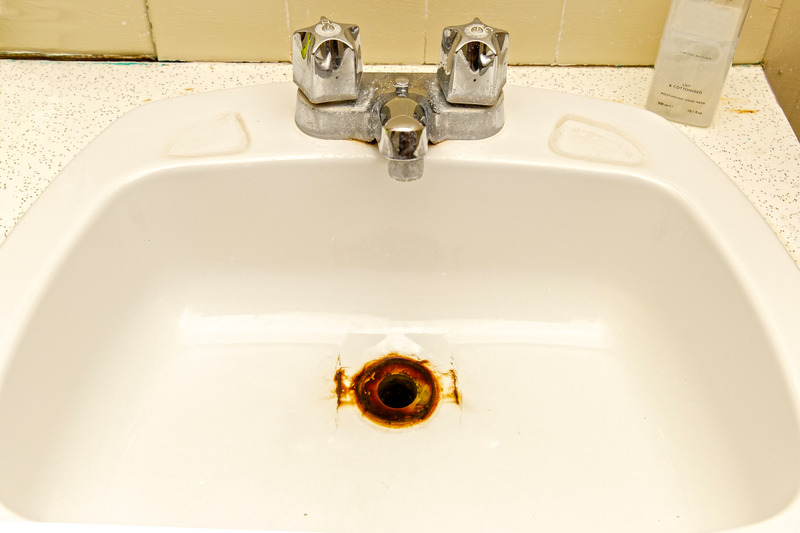
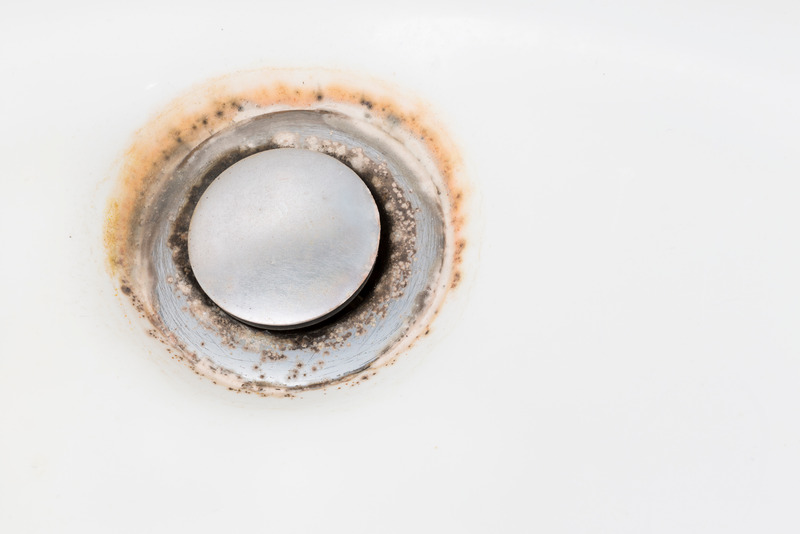
Table of Contents
How to Remove Rust Stains from Plastic Sink
White Vinegar
If the rust stain is still new, white vinegar with water can get rid of it. Mix two parts of water with one part of white vinegar. Apply the mixture to the stain and leave it there for a few minutes. Then rinse your plastic sink and enjoy its shine once again.
Baking Soda
Another practical tip is to sprinkle a good amount of baking soda all over the discolored area. Spray some white vinegar over the affected spot until the mixture starts bubbling. Then, with a cloth or a sponge, rub the mixture into the rusty area.
Lemon Juice
Lemon juice, like white vinegar, is an excellent natural cleanser capable of removing a wide variety of stains. In addition to that, it has a pleasant odor that will make your plastic sink smell wonderful.
This time, we’re going to mix it with salt. To begin, make a thick paste by combining salt and lemon juice. Apply the mixture to the rusty stain and let it sit for 20 minutes. After that, wipe your plastic sink with a sponge or a towel and rinse it with cool water.
Bar Keeper’s Friend
Alright, now it’s time to start showing you the products you can get at your local grocery store. One of the cleaners we often recommend for stubborn stains, such as the one caused by rust, is Barkeepers Friend. It’s indeed an abrasive product when compared to the natural options. Yet, the results it provides are, on the whole, excellent.
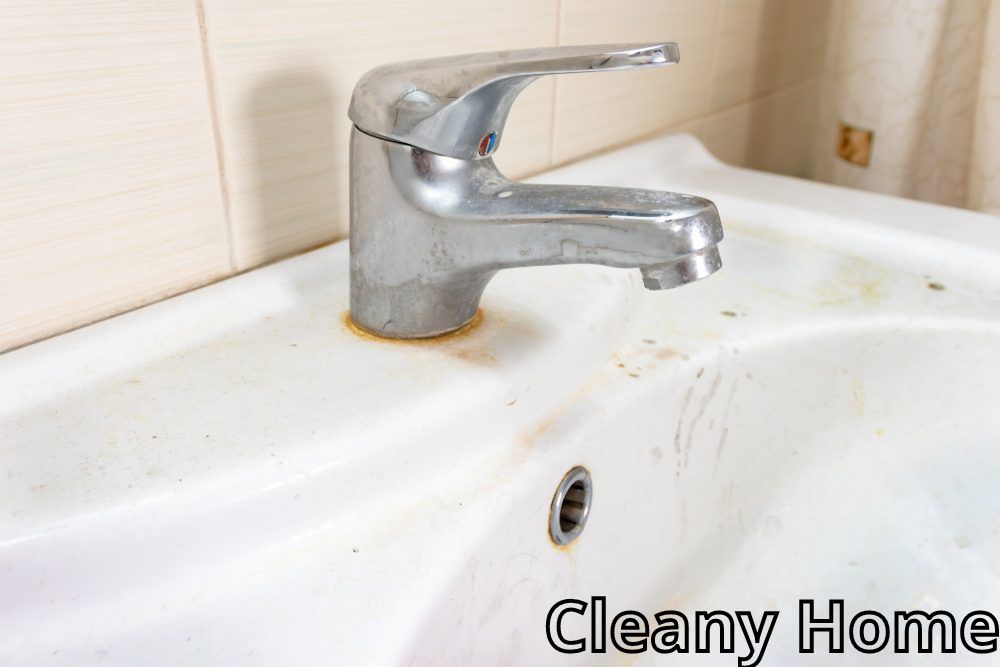
Start by wetting your plastic sink. Then, sprinkle a generous amount of Barkeepers Friend over the rusty stain and rub it using circular motions. After that, rinse your plastic sink with water, ensuring nothing is left behind.
Sidenote: Do not leave Barkeepers Friend on your plastic sink for an extended amount of time. It can cause discoloration, making things worse than they already are. Instead, we recommend cleaning it immediately upon application.
Magic Eraser
A Magic Eraser is an excellent option for removing tough stains. It does need some elbow grease, but its results are often spectacular. Wet the sponge and start scrubbing in circular motions on the stain. Rinse the whole plastic sink and repeat if the blotch refuses to leave your sight.
Iron Out
Iron Out is one of the best cleaners for removing rust stains from plastic sinks. It’s easy to use and takes little time to get the desired results.
First, spray Iron Out on the rusty area and let the product work for a few minutes. After that, rinse your plastic sink well with clean water.
The main advantage of this product is that it is non-abrasive. On top of that, Iron Out is available on Amazon.
You can also use Magica Rust Remover as an alternative to Iron Out. However, please keep in mind that this product is abrasive. Even though it works well on plastic sinks, it can harm vulnerable surfaces such as Marble. So, work with caution if you decide to use Magica!
How to Avoid Rust Stains on a Plastic Sink
As previously said, the most common cause of rust stains is tap water. Fortunately, there are many solutions depending on the root of the issue. For instance, if the rust stains are caused by a high quantity of iron in your water, you can solve the problem by investing in a water softener.
A water softener not only prevents rust stains but also provides better water for drinking, bathing, washing dishes, and much more. If you’d want to learn more about the benefits of water softeners, please read this article.
On the other hand, if the rusty water is a result of rusty galvanized pipes, you have no choice but to contact a plumber.
If a water softener is out of your budget range, consider installing an Iron Filter instead. This latter will eliminate iron and sulfur gas from your water supply, helping you avoid any of the above-mentioned rust issues.
As a water softener, Iron Filter also offers several benefits, including better water for drinking, preventing rust stains, and increasing the lifespan of your fixtures.
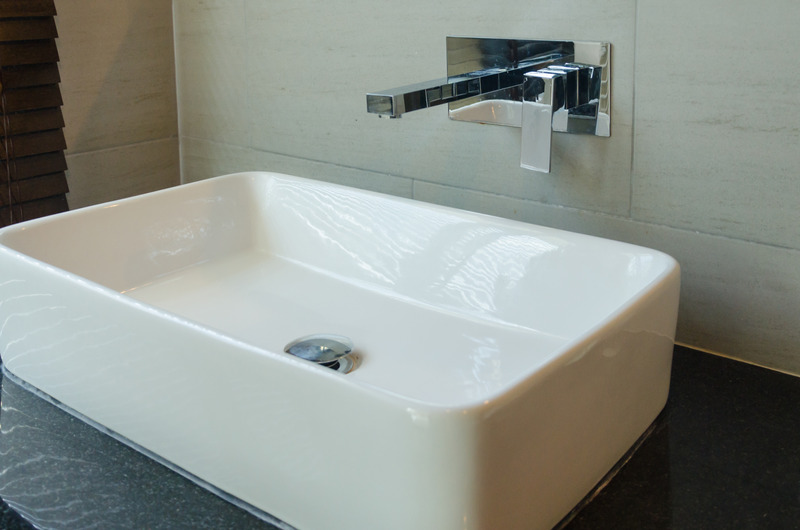
Conclusion
According to what we’ve found on the internet, many homeowners have suggested phosphoric acid-based products, which can be found on stainless steel cleansers. According to these people, these kinds of cleaners do provide excellent results with little effort.
Still, we haven’t tried any phosphoric acid-based products. Thus, we can’t recommend them as a safe bet. Nevertheless, if you have a stainless steel cleaner and want to try this tip, you should first test it on an inconspicuous part of your plastic sink.
If you have a unique cleaning hack in your pocket that isn’t mentioned above, please share it in the comment section below. This way, others that are dealing with the same issue can achieve the same success as you did.
Also, in case you’ve missed it, we’ve published a similar guide to this one on how to remove rust stains from a quartz countertop. Therefore, it’s a must-read article if you suffer from water with a high iron level.
How do you get rust stains out of acrylic sinks?
To get rust stains out of acrylic sinks, mix equal parts of baking soda and water to form a paste, apply the paste to the rust stains and let it sit for 15-20 minutes, then scrub gently with a soft-bristled brush or cloth. Rinse the sink with warm water and repeat the process as necessary until the rust stains are removed. Avoid using abrasive cleaners, steel wool, or harsh chemicals on acrylic sinks as they can scratch or damage the surface.
Will bleach remove rust stains from plastic?
Bleach is not recommended for removing rust stains from plastic as it can damage or discolor the plastic. Instead, it’s better to use a product specifically designed for removing rust stains from plastic, such as a commercial rust remover or a mixture of baking soda and water.
How do you clean a badly stained plastic sink?
To clean a badly stained plastic sink, make a paste of equal parts baking soda and water, apply it to the stains, let it sit for 15-20 minutes, scrub with a soft-bristled brush, rinse with warm water, and dry with a clean cloth. Alternatively, use a commercial plastic cleaner or a mixture of white vinegar and water. Avoid using abrasive cleaners or steel wool.
How do you get rust stains out of UPVC?
To get rust stains out of UPVC, you can use a mixture of white vinegar and water in equal parts. Apply the solution to the rust stain and let it sit for a few minutes. Scrub the stain gently with a soft-bristled brush or cloth. Rinse the UPVC surface with water and dry it with a clean cloth. If the rust stain persists, you can use a commercial rust remover specifically designed for use on UPVC surfaces. Be sure to read and follow the manufacturer’s instructions carefully.
Will vinegar damage clear plastic?
Vinegar can damage clear plastic if left in contact for an extended period of time or used in high concentrations. The acidic properties of vinegar can cause cloudiness or discoloration on certain types of plastic.
Does baking soda remove stains from plastic?
Yes, baking soda can remove stains from plastic surfaces. To use, make a paste of baking soda and water and apply it to the stained area. Let it sit for a few minutes, then scrub gently with a soft-bristled brush or cloth. Rinse with water and dry with a clean cloth. Baking soda can be effective at removing a variety of stains, including coffee, tea, and grease stains, but it may not work on all types of stains.
We're an affiliate
We hope you love the products we recommend! Just so you know, CleanyHome.com is a participant in the Amazon Services LLC Associates Program, an affiliate advertising program designed to provide a means for sites to earn advertising fees by linking to Amazon.com.

![How to Get Rid of Spiders in the Basement [9 Effective Tips]](https://supercleanworldall.com/wp-content/uploads/2021/07/depositphotos_125531742-stock-illustration-the-pattern-with-spiders.jpg)
